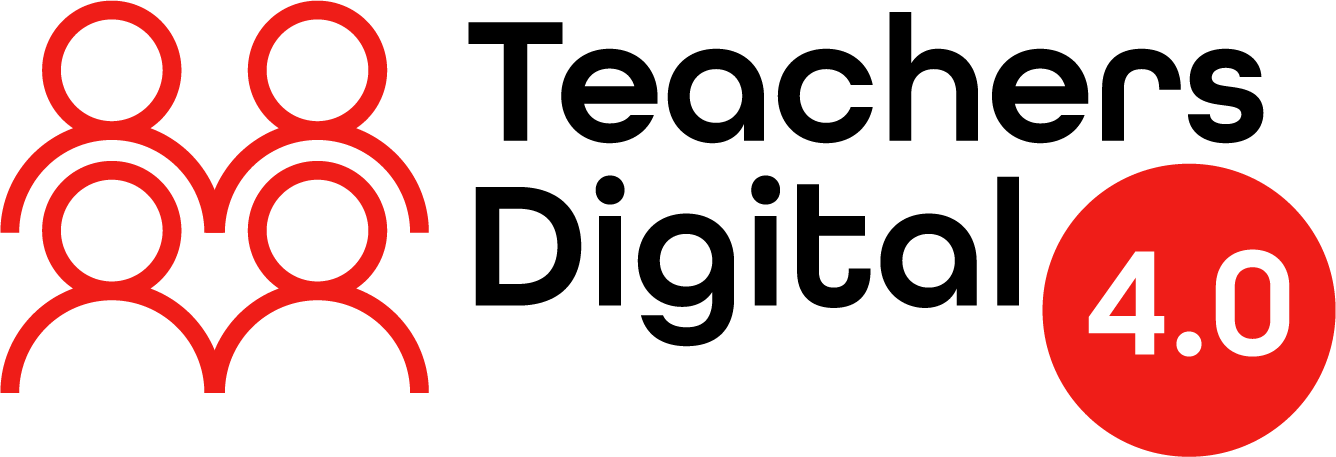
During the school years 2021-2022 and 2022-2023, one of the Teachers 4.0 Digital project partners, the Institute of Educational Policy (IEP) proceeded with the implementation of the action “Pilot Implementation of Curricula in Primary and Secondary Education”. This action was carried out within the framework of the Actions “Upgrading of Curricula and Creation of Educational Materials in Primary and Secondary Education” and “Training of Teachers in Curricula and Educational Materials in Primary and Secondary Education”.
At all levels of education, from pre-school to secondary education, the term digital media literacy has become an integral part of curricula in many countries around the world, starting from the early stages of education. In an era of constant technological developments, the need to develop critical thinking and discern reliable information is imperative. The overload of information and news often creates confusion, making the ability to filter and evaluate the necessary sources.
In this context, teachers and students need to be prepared with the relevant knowledge and skills to develop critical thinking and assess the validity of information. Combating misinformation requires technology and media training from the earliest school level in order to combine information and news literacy. Through the new curricula for primary and secondary education, the need to cultivate the ability of each individual to approach new information and communication technologies (ICT) critically is highlighted.
Digital literacy encompasses a wide range of skills that students need to master, and relates to the use of ICT for:
1. Searching, collecting, evaluating and managing information from various sources.
2. Creating digital content and new information.
3. Communicating and sharing information with others in order to build knowledge and solve problems.
The concept of information literacy is complementary to digital literacy and involves a deep knowledge of basic concepts of information technology and the operation of computer technology. In modern curricula, both digital and information literacy are considered to be subjects of similar importance to language, mathematics and science literacy. The curriculum of the course “Computer Science and Information and Communication Technologies (ICT)” adopts the philosophy of the Interdisciplinary Integrated Curriculum Framework from pre-school to high school and is based on modern scientific research and teaching approaches, emphasizing cross-cutting principles such as inclusion and enhancing the participation of all students in Computer Science. In addition, it promotes education with respect for diversity and cultures, the connection of the course with the real world and everyday life, pedagogical flexibility and openness (freedom from dependence on specific technologies, tools and platforms), as well as exploration, collaboration and interdisciplinarity. Finally, the curriculum of this course follows a set of specific principles, aiming to form the basis for the education of the future citizens of our country (IEP, 2021b).
Educational activities related to digital and information literacy include the exposure of students to digital technologies and information technology, as well as the understanding of their role in modern society and culture. From 2021, the compulsory timetables of all Kindergartens, Primary and Secondary Schools will also include Skills Workshops 21+, which aim to enhance the cultivation of life, technology and science skills.
Skills Workshops are an innovative teaching and learning activity, which introduces new thematic units with an emphasis on skills. Their basic principle is to link the curriculum’s field of knowledge with the development of students’ basic skills in order to shape responsible citizens. Skills are grouped and cultivated in four targeting cycles:
1. 21st century skills.
2. Life skills.
3. Technology, engineering and science skills.
4. Skills of the mind.
The technology skills category includes workshops that develop digital and information literacy skills, technological literacy and safe internet navigation skills.
Our students are part of a global digital community, where they are daily exposed to news and information that needs to be evaluated for quality. The goal is for students, as consumers and creators of information, to acquire critical thinking and digital literacy skills, making them responsible citizens in the global digital community. Digital competences are essential in all aspects of life, whether social, personal, professional or leisure. The digital divide creates conditions of exclusion and a democratic deficit, as it does not allow equal access for citizens. Developing digital literacy improves citizenship and is a key objective for a modern democratic society.
The IEP and the Teachers 4.0 Digital Age
IEP is a scientific and research institution that supports the Ministry of Education, Religious Affairs and Sports (MTEF) in primary and secondary education, teacher training and addressing educational inequalities. IEP participates in the Teachers 4.0 Digital project, which offers teachers in Greece the opportunity to be trained in digital literacy and countering misinformation. This project is an important opportunity for the professional development of teachers, enhancing their digital literacy and critical thinking skills. They will in turn act as multipliers of knowledge, transferring it in a constructive way to their colleagues for use in classrooms.
Teachers 4.0 Digital empowers teachers in primary and secondary schools across Europe, promoting digital media literacy and tackling misinformation. This is a large-scale activity focused mainly in Bulgaria, Cyprus, Greece, Italy, Poland, Cyprus, Greece and Romania.
For more information, check out the Teachers 4.0 Digital project website.
Interested in staying in touch with Teachers 4.0 Digital for future news, events and learning opportunities?
Subscribe to our newsletter and follow us on LinkedIn, Facebook, Instagram!
References:
Εργαστήρια Δεξιοτήτων. Ινστιτούτο Εκπαιδευτικής Πολιτικής. https://iep.edu.gr/el/psifiako-apothetirio/skill-labs
Ινστιτούτο Εκπαιδευτικής Πολιτικής (2021). Πρόγραμμα Σπουδών για το μάθημα Πληροφορική και Τεχνολογίες της Πληροφορίας και Επικοινωνιών Δημοτικού. https://iep.edu.gr/el/nea-ps-provoli
Νέα Προγράμματα Σπουδών – Αρχική σελίδα. Ινστιτούτο Εκπαιδευτικής Πολιτικής. https://iep.edu.gr/el/nea-programmata-spoudon-arxiki-selida
Παπαδημητρίου, Σ. (2016). Εγγραμματισμός στα Μέσα: Προσεγγίζοντας το Σχολείο του 21ου Αιώνα. Στα Πρακτικά του 1ου Πανελληνίου Συνεδρίου «Προγράμματα Σπουδών – Σχολικά εγχειρίδια: Από το παρελθόν στο παρόν και το μέλλον». Αθήνα, 2016.






